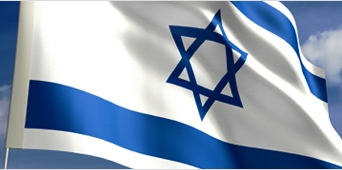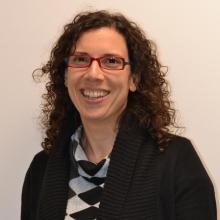
“And how does one stand in a Memorial Ceremony? Erect or bent, rigid like a tent or limp as in mourning, head humbled like the guilty or raised in defiance against death, eyes wild or frozen like the eyes of the dead, or shut, to view the stars within?” - Yehuda Amichai, Open Closed Open
There is something consoling about the familiar routine of Yom HaZikaron in Israel. The siren, the ceremonies, the quiet streets, the documentary films that help us remember and feel closer to our fallen soldiers and victims of terror, and the songs that echo and express our pain. The country covers up with collective grief and a sacred silence. Perhaps this routine, just like the rituals of shiva, is a way to help us contain the feeling of distress and find some comfort. We are perplexed by grief, anger and guilt. Some question the price of war and of our actions. The void that our dear ones left behind becomes more tangible on this day than ever for us all.
“We don’t have unknown soldiers” the poet Yehuda Amichai wrote. We also don’t have unknown victims of terror. Can we turn to the “starts within” for comfort? Could they really dim the pain? Amichai's poem depicts the confusion and anguish that dominate the day. For some, these feelings are more present during memorial ceremonies; for many, they are unfortunately a part of everyday life. The Memorial Day for the fallen soldiers and victims of terrorism helps us to strengthen each other and find comfort in each as a collective. Could there be an additional purpose for the commemorating as a collective on this day? The Israeli writer Yoram Kaniuk advises us what does it mean to commemorate:
“The biggest honor that we could grant all of our dead whose spirit passes by us today, is to face them and say, that their shy voice, reproaching with its silence, is heard well from one end of the country to another; that we will try as hard as we can to nurture the roots that they planted with their bodies in the hard ground so that they could grow tall into a beautiful tree, a lovely house and a society as appealing as possible. “
I find this advice inspiring and powerful. This type of proactive memory is empowering. There are many ways of remembering our people. We should make sure that their songs live on and also that our lives and actions honor their lives. Building a just society and country becomes, then, our source of strength and comfort.
Rabbi Yehudit Werchow is the Jewish Agency for Israel’s Central Shlicha for the Union for Reform Judaism.
Related Posts

Harnessing the Power of our Mothers Around the Seder Table

Melding Tradition and Innovation: Our Interfaith Toddler Naming Ceremony


